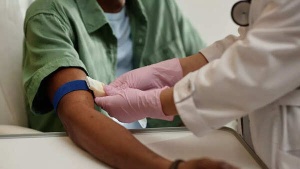Covid 19 resurges in the country: How THIS common symptom is key to the new variant
The COVID-19 virus is making a comeback after a period of relative calm, with a surge in cases observed globally, including in India. While the majority of cases remain mild and patients are recovering at home, health officials are urging caution, especially for individuals with co-morbidities, pregnant women, and the elderly. The virus's continuous evolution and mutation have led to the emergence of new variants, each with its own distinct transmission patterns and symptom profiles. The latest variant, known as NB.1.8.1 or "Nimbus," is drawing attention due to its association with a particularly painful sore throat, often described as a "razor blade throat."
Origins of the Nimbus Variant
The Nimbus variant (NB.1.8.1), a descendant of Omicron, was first identified in January 2025. Since its emergence, it has rapidly spread across numerous countries, including the United States, Canada, the United Kingdom, India, and parts of Asia. The World Health Organization (WHO) currently classifies the variant as mild, with no evidence suggesting it causes more severe illness than previous strains.

Razor Blade Throat: Why is Throat Pain So Prominent?
A notable characteristic of the Nimbus variant is the intense sore throat reported by many infected individuals. Patients often describe the sensation as "swallowing razor blades" or "glass," a stark contrast to the milder throat discomfort associated with earlier COVID-19 variants.
Leading medical professionals suggest that the severe throat pain is due to significant dryness and cracking in the throat, leading to intense discomfort. This is likely caused by the virus inducing inflammation and irritation within the throat tissues, which is exacerbated by swallowing.
Additional Symptoms of the Nimbus Variant
While a painful sore throat is a hallmark of the Nimbus variant, it is usually accompanied by other common COVID-19 symptoms, including:
- Cough
- Fever
- Fatigue
- Muscle aches resembling extreme fatigue
- Persistent nasal congestion
- Headaches
- Nausea or vomiting
- Changes in taste or smell
These symptoms are consistent with those observed in other Omicron variants.
What to Do if You Experience a Sore Throat
It is important to note that not every sore throat is indicative of COVID-19. However, if you experience a sharp or burning sore throat in conjunction with other symptoms, particularly if swallowing becomes difficult, the following steps are recommended:
- Get tested for COVID-19: Confirmation of the virus is crucial due to throat pain being a key symptom.
- Stay isolated: Prevent further transmission by isolating at home and avoiding close contact.
- Drink plenty of fluids: Hydration helps to soothe the throat, even if painful.
- Use throat lozenges or warm salt water gargles: These can provide temporary relief.
- Seek medical help if symptoms worsen: Immediate medical attention is necessary if you experience breathing difficulties, persistent high fever, or severe pain.

It is also important to remember that bacterial infections can also cause sore throats, requiring antibiotic treatment. Because COVID-19 is a virus, antibiotics are ineffective. Therefore, avoid self-medicating and consult a physician for appropriate diagnosis and treatment.
The Importance of Vaccination
Current COVID-19 vaccines, especially those with updated boosters, remain effective in protecting against severe illness, hospitalization, and death caused by the Nimbus variant. While breakthrough infections can occur, vaccinated individuals typically experience milder symptoms.
Sources: World Health Organization, the Centers for Disease Control and Prevention
Newer articles
Older articles
-
 5 smart tricks to instantly influence anyone (without being pushy), as per psychology
5 smart tricks to instantly influence anyone (without being pushy), as per psychology
-
 This new AI tool can help you book train tickets, get refunds and check details on IRCTC website and app
This new AI tool can help you book train tickets, get refunds and check details on IRCTC website and app
-
 Cancer could be detected 3 years before symptoms appear with a simple blood test; new study reveals
Cancer could be detected 3 years before symptoms appear with a simple blood test; new study reveals
-
 ESA reveals the first stunning images of an artificial solar eclipse created by Proba-3 satellites
ESA reveals the first stunning images of an artificial solar eclipse created by Proba-3 satellites
-
 Chess: 'My wife is way more attracted to me now' — Magnus Carlsen after record rating in freestyle
Chess: 'My wife is way more attracted to me now' — Magnus Carlsen after record rating in freestyle
-
 Don't worry about the outside world: Tendulkar's advice to Gill
Don't worry about the outside world: Tendulkar's advice to Gill
-
 NASA astronauts prepare ‘space sushi’ aboard the ISS in zero gravity during a heartwarming crew celebration
NASA astronauts prepare ‘space sushi’ aboard the ISS in zero gravity during a heartwarming crew celebration
-
 Amitabh Bachchan calls working with son Abhishek Bachchan his 'greatest blessing'
Amitabh Bachchan calls working with son Abhishek Bachchan his 'greatest blessing'
-
 Tait rues new-ball miss as Nissanka punishes Bangladesh
Tait rues new-ball miss as Nissanka punishes Bangladesh
-
 Twitter bans over 5 lakh accounts in India, here's why
Twitter bans over 5 lakh accounts in India, here's why